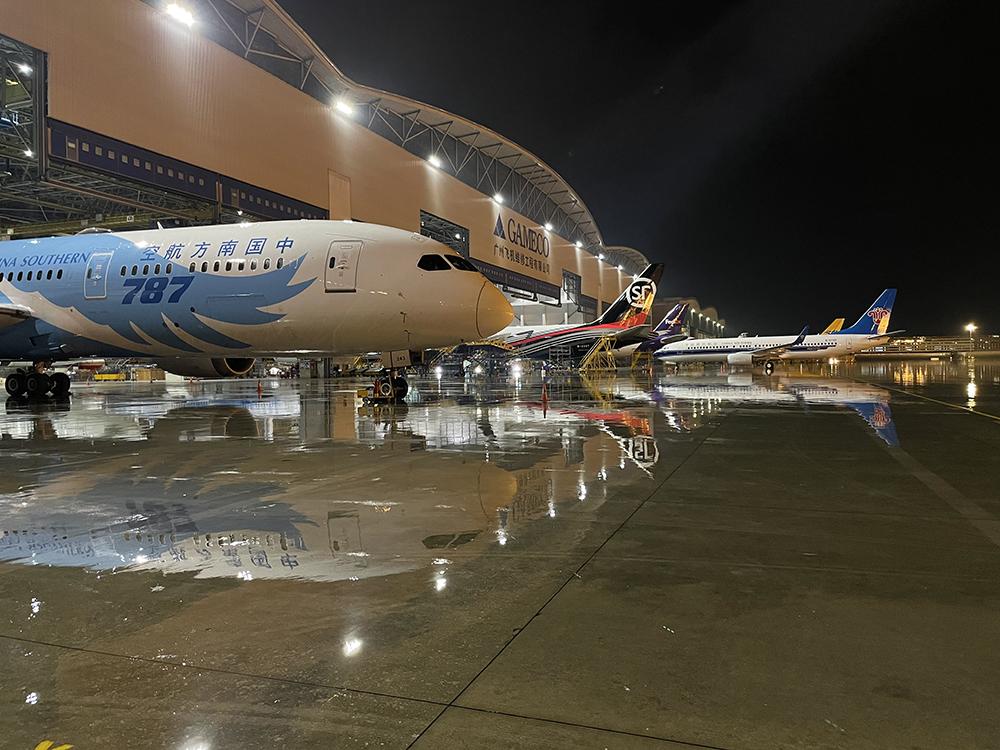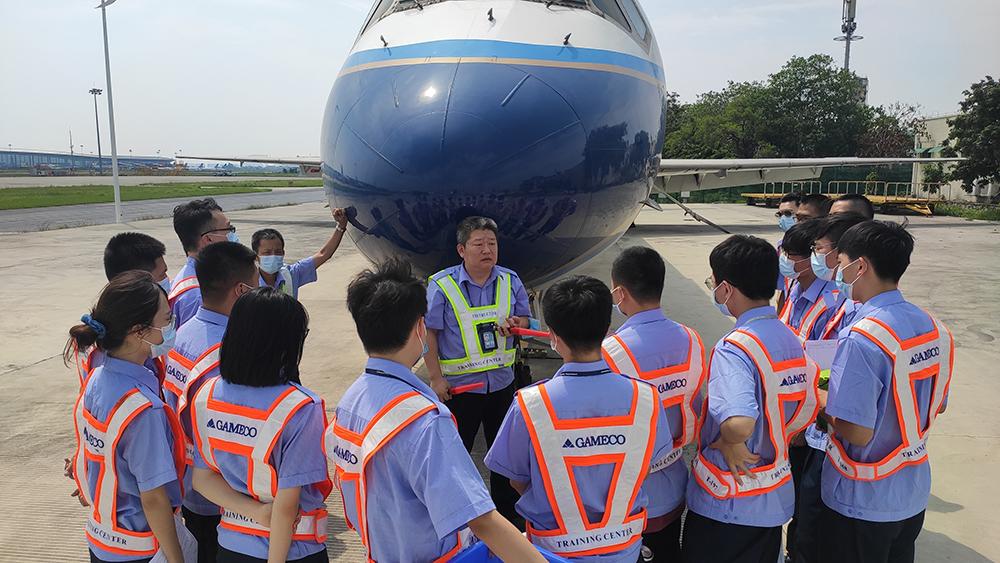
China’s Zero-COVID policy has posed unique challenges to the country’s economy, aviation and aircraft maintenance. Norbert Marx, CEO and general manager of GAMECO, recounts the chaotic aviation environment his MRO has worked within over the last 30 months of COVID-19.
First, there were the short Wuhan lockdowns in January 2020, then a quick recovery of domestic aviation. “We were busy and attracted some other airlines as some of our competitors struggled,” says Marx.
GAMECO thus had a pretty good year in 2021. But when the COVID-19 Omicron variant hit in 2022, another rollercoaster began. Lockdowns started in some cities in April and May. Then a strong recovery brought domestic flights to near pre-COVID levels by early August 2022. Next, a central Chinese city was locked down, and domestic traffic dipped in late August.
China’s international flying, in contrast, has stayed flat at 20-25% of pre-COVID levels. Some officials are trying to make international flying easier—for example, by reducing quarantine periods for incoming travelers. Marx hopes for progress, but taken all in all, “predicting next year is not so easy.”
The impact of constant changes on GAMECO has been dramatic. Line maintenance followed flights, with international flights down and domestic flights varying from 60-110% of pre-COVID levels, depending on which point within the lockdown rollercoaster. Generally, GAMECO’s line maintenance has hovered 15-20% below 2019 levels.
Heavy maintenance, on the other hand, has been pretty busy, with GAMECO now doing more labor-hours than in 2019, according to Marx. A massive new hangar has helped, as have passenger-to-freighter (PTF) conversions, with online commerce driving heavy cargo demand in China.
The Guangzhou-based MRO now has more than 30 heavy-check lines, three conversion lines for Boeing 737NGs and two nose-to-tail lines for 767 conversions. It has also begun conversion work on two COMAC ARJ21s.
“We are still working on the STCs [supplemental type certificates],” Marx says. “We will deliver the first before the end of the year.”

Marx says GAMECO does not have much problem finding new mechanics in general. It works with colleges and vocational schools, and it also has its own training organization. “You still find a lot of people looking for jobs, although aviation is not as attractive as it used to be.”
There are pay pressures for mechanics in China, and labor costs are rising, Marx acknowledges—but so is MRO efficiency. Other industries compete for the same kind of talent as MROs, and mechanic work can be tough, with night shifts, personal responsibility and signing off on all jobs.
Marx says GAMECO is having challenges finding temporary structural mechanics, especially for PTF conversions. He says this used to be much easier 10 years ago, but now that Ameco, ST Engineering and others are also doing conversions, recruiting these specialists has become tougher.
GAMECO needs temporary structural mechanics to ramp up conversion lines until permanent staff can take over. “We use our own for regular work, but don’t want to take too many away from cabin work, because we still want to be in that business.” Marx explains.
GAMECO has not let any staff go during the pandemic, but Marx says the company usually loses about 350 of its 6,700 employees each year. During COVID-19 it slowed down new hires, from 800-1,000 annually pre-COVID to 500-600 annually during the pandemic. So, it is still increasing headcounts.
Marx emphasizes that, pandemic aside, the underlying dynamics of Chinese aviation are still very strong. The country has more than 40 airport projects in the works and it is adding seven to eight new airports a year. Verbally committed to Net Zero CO2 only by 2060, China may still strongly grow its economy and aviation for quite a while.
Supply chain problems affect GAMECO, as with every MRO. Lead times are longer on OEM parts, so Marx says inventories must be increased. Physical logistics are also a challenge.
“Containers are hard to get,” Marx notes, adding that Europe-China transport has become more difficult as European airlines avoid flying over Ukraine and Russia.
On the other hand, GAMECO is increasing its production of at least a limited number of parts in-house. “We are becoming more self-sufficient,” Marx says. The MRO now has a new component center and a composite autoclave.
Furthermore, some aircraft parts are produced in China itself, and teardowns of Chinese aircraft are providing more used parts for Chinese MROs. However, Marx is not seeing any cross-border trade in used parts.
For new parts from outside China, Marx says political tensions are causing more paperwork, more expense and more administrative processes.
On the plus side, GAMECO is using more online tools to deal with Chinese customs authorities and with airlines on over-and-above repairs. This shift was pushed by COVID-19 and the fact that China has been more difficult to physically reach than the rest of the world.
GAMECO has also not slowed down any of its big technology projects. Marx says he wants the company to be “a showcase for AI [Artificial Intelligence].” It has been cooperating with China Telecom on a number of communication and IT projects, and it has had 5G cellular in its hangars for four years.
Marx believes digital tools and AI will be the only effective ways to deal with all the complexities of modern MRO, with tool, biometric, equipment and all the other data involved.
When GAMECO started with one hangar, maintenance could be personally managed. But now that its hangars and shops stretch over a mile, “you need supporting tools,” Marx says. Already, a GAMECO mechanic doing an inspection with a smartphone can complete a paperless order and have the needed part delivered to a nearby box by the time he is inspecting the next item. “It’s definitely cutting wasted time,” Marx adds.
In July, GAMECO signed a materials management contract with Boeing. Data links must be set up and training must done, but Marx expects it will boost efficiency. “We will pay a little more than spot prices, but save on planning, reduce our inventories and not worry about transportation,” he says. He adds that a similar, prior deal will Airbus has paid off.




